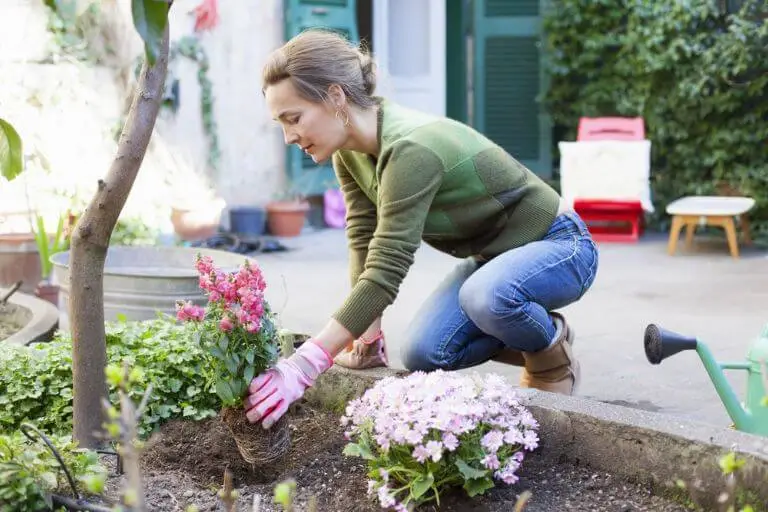
Caring for your garden is both an art and a science. It’s about understanding the unique needs of your plants and the environment they grow in while cultivating a connection to nature. Whether you’re nurturing vibrant flowers, growing your own vegetables, or maintaining a lush lawn, a thriving garden requires consistent attention and smart strategies.

In this guide, we’ll cover essential practices for caring for your garden, from soil preparation to pest management, seasonal care, and much more. By the end, you’ll have the tools and confidence to transform your garden into a flourishing oasis. Let’s get started!
Why Garden Care Is Essential
Enhancing Your Home’s Aesthetic Appeal
A well-maintained garden significantly boosts your home’s curb appeal. Neatly trimmed hedges, vibrant flower beds, and healthy grass create an inviting and visually pleasing atmosphere.
Supporting Local Ecosystems
Gardens are critical for supporting biodiversity. They provide food and shelter for pollinators like bees, butterflies, and other beneficial creatures essential for a healthy ecosystem.
Promoting Mental and Physical Health
Gardening reduces stress, encourages physical activity, and fosters mindfulness. It’s not just about growing plants; it’s about cultivating a space for personal well-being.
Caring for your garden, laying the foundation for a thriving garden
Soil Preparation
Testing Soil Health
The foundation of any healthy garden is its soil. Conduct soil tests to determine pH levels, nutrient content, and texture. This will help you select the right amendments to create an optimal growing environment.
Adding Organic Material
Incorporate organic compost, aged manure, or leaf mold to improve soil structure, enhance water retention, and provide essential nutrients for plants.
Choosing the Right Plants
Assessing Your Garden’s Conditions
Choose plants suited to your garden’s climate, soil type, and light exposure. Native plants are an excellent choice as they require less maintenance and are more resilient to local pests.
Grouping Plants Strategically
Group plants with similar water, light, and soil requirements together to make care more efficient and improve growth outcomes.
Daily and Weekly Garden Care Routines
Watering Best Practices
Deep and Consistent Watering
Water your plants deeply 1-2 times a week rather than shallowly every day. This encourages root growth and ensures better drought resistance.
Timing Your Watering
Water early in the morning or late in the evening to reduce evaporation and allow plants to absorb moisture efficiently.
Mulching to Conserve Moisture
Apply organic mulch like wood chips, straw, or shredded leaves around plants. Mulch helps retain soil moisture, suppress weeds, and regulate soil temperature.
Regular Weeding
Weeds compete with your plants for nutrients and water. Remove them promptly, using tools to avoid disturbing nearby roots.
Nutrient Management for Vibrant Growth

Fertilizing Effectively
Organic vs. Chemical Fertilizers
Opt for organic fertilizers whenever possible to promote soil health and minimize environmental impact. Compost, bone meal, and seaweed extracts are excellent choices.
Timing Fertilizer Applications
Essential tips for caring for your garden. Apply fertilizer during periods of active plant growth, such as spring and early summer, to provide plants with the nutrients they need most.
Rotating Crops and Plants
Crop rotation isn’t just for farmers. Rotating plants annually reduces the risk of pests and diseases that target specific crops.
Managing Garden Pests and Diseases
Identifying Pests Early
Essential tips for caring for your garden. Common garden pests include aphids, slugs, and spider mites. Inspect your plants regularly for signs of damage, such as holes in the leaves or discolored foliage.
Organic Pest Control Solutions
Use natural remedies like neem oil or insecticidal soap to manage pests without harming beneficial insects. Companion planting, such as marigolds near tomatoes, also deters pests.
Preventing Plant Diseases
Proper spacing between plants ensures good air circulation, reducing the risk of fungal infections. Remove diseased leaves promptly to prevent the spread of pathogens.
Seasonal Garden Care Tips
Spring Tasks
Essential tips for caring for your garden. Spring is a time of renewal. Clear away debris, test the soil, and start planting cool-weather crops. Prune shrubs and trees to encourage new growth.
Summer Maintenance
Focus on watering, mulching, and regular weeding during hot months. Protect sensitive plants with shade cloth if temperatures soar.
Autumn Preparations
Plant bulbs for spring blooms, remove dead annuals, and cover your soil with a thick layer of mulch to prepare for winter.
HWinter Protection
Shield plants from frost with burlap or frost blankets. Keep watering evergreen shrubs, as they continue to need moisture during cold months.
Designing a Sustainable Garden
Reducing Water Usage
Incorporate drought-tolerant plants and install drip irrigation systems to minimize water waste.
Composting for Waste Reduction
Recycle kitchen scraps and garden waste into nutrient-rich compost. This reduces landfill contributions and enriches your soil.
Encouraging Pollinators
Plant wildflowers, lavender, and other nectar-rich blooms to attract bees and butterflies. Avoid pesticides that could harm these essential creatures.
Conclusion
Essential tips for caring for your garden. Caring for your garden is a rewarding journey that combines creativity, knowledge, and connection with nature. From soil preparation to pest control and adapting to seasonal changes, every step contributes to a thriving garden. By following these essential tips, you’ll cultivate a space that’s not only beautiful, but also functional and environmentally friendly.
Remember, a garden is a living ecosystem that evolves with time. Stay patient, observant, and consistent in your care, and your efforts will bloom into success—season after season.
FAQs
How often should I fertilize my garden?
It depends on your plants, but most gardens benefit from fertilizing once in spring and once in mid-summer.
What’s the easiest way to prevent weeds?
Mulching is one of the best ways to suppress weeds. It also helps retain soil moisture and regulate temperature.
How do I protect my plants from frost?
Use frost blankets or burlap covers, and consider moving potted plants indoors during extreme cold.
What are some beginner-friendly plants for gardening?
Try growing herbs like basil and parsley, or hardy flowers like marigolds and sunflowers.
